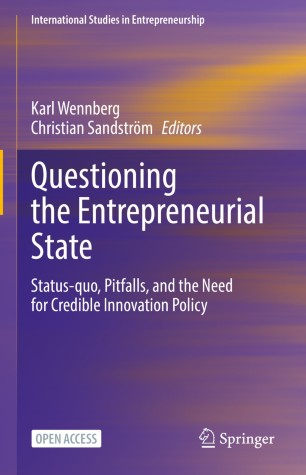
Questioning the Entrepreneurial State
Sammanfattning
Western economies are struggling to recover from a decade of Plagued by structural crises, an ongoing pandemic, high unemployment and sluggish growth. As progressively looser monetary and fiscal policies have not helped, both the EU and national governments have increasingly turned towards interventionist industrial policies. Mariana Mazzucato’s The Entrepreneurial State (2011) provided an intellectual justification for these efforts, and consequently gained popularity. The message was clear: in order to get more innovation, entrepreneurship, sustainable development and growth we need more government, not less. In this book, 30 international scholars address the core ideas underpinning the entrepreneurial state. We provide evidence of both historical and recent failures of “green deals” and similar efforts, while also developing novel directions for innovation policy. In many regards, this book is a warning: huge government schemes towards specific, noble outcomes have historically been plagued with failures. In sum, we argue that innovation policy needs to be inverted: instead of being specific and targeted, it needs to be broad and general, focusing on the general conditions for firms to operate. Instead of providing targeted support to certain firms, industries or even technologies, innovation policy needs to constructively deal with barriers to innovation, including the proactive handling of vested interest groups.
The book is open access and can be downloaded here.
Wennberg, K. & Sandström, C. (2022). Questioning the Entrepreneurial State. Springer.
Detaljer
- Författare
- Wennberg, K. & Sandström, C.
- Publiceringsår
- 2022
- Publicerat i

